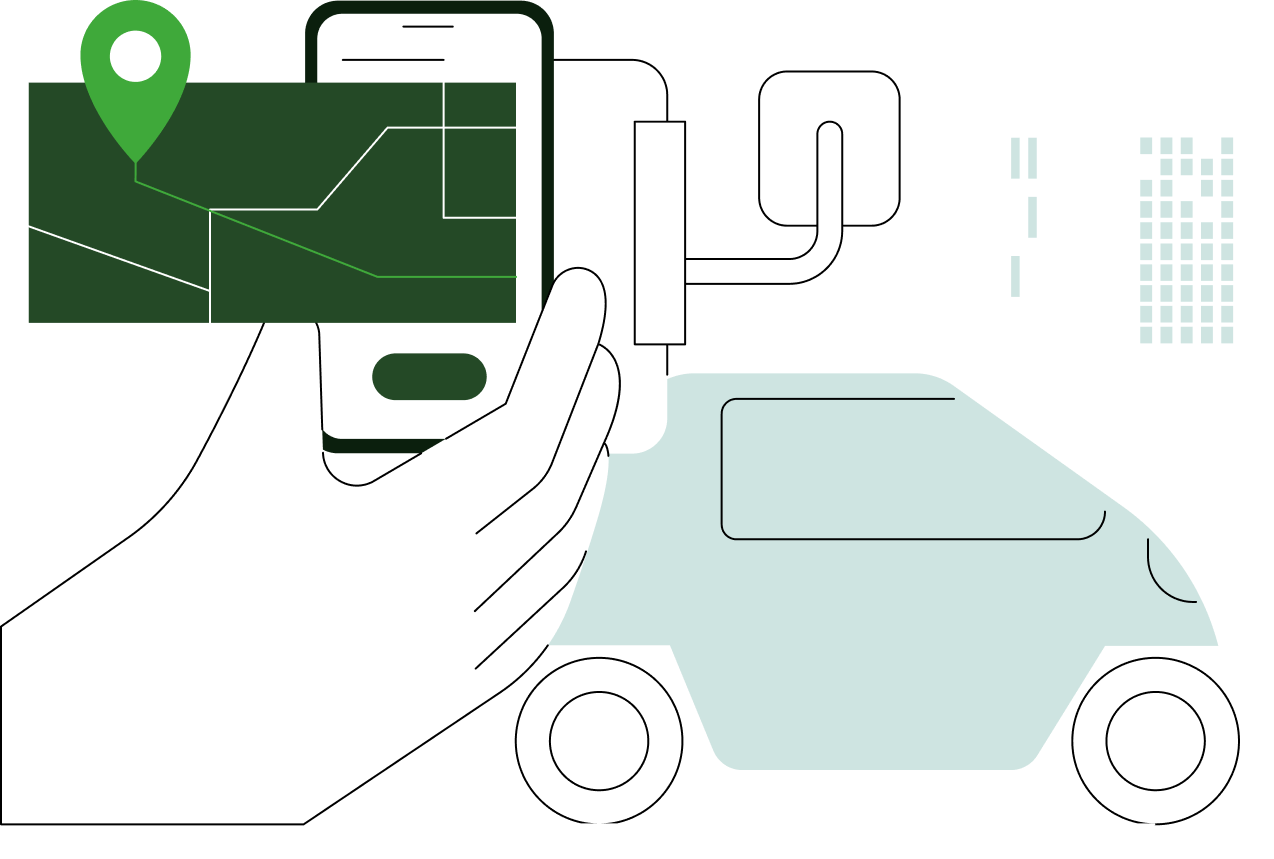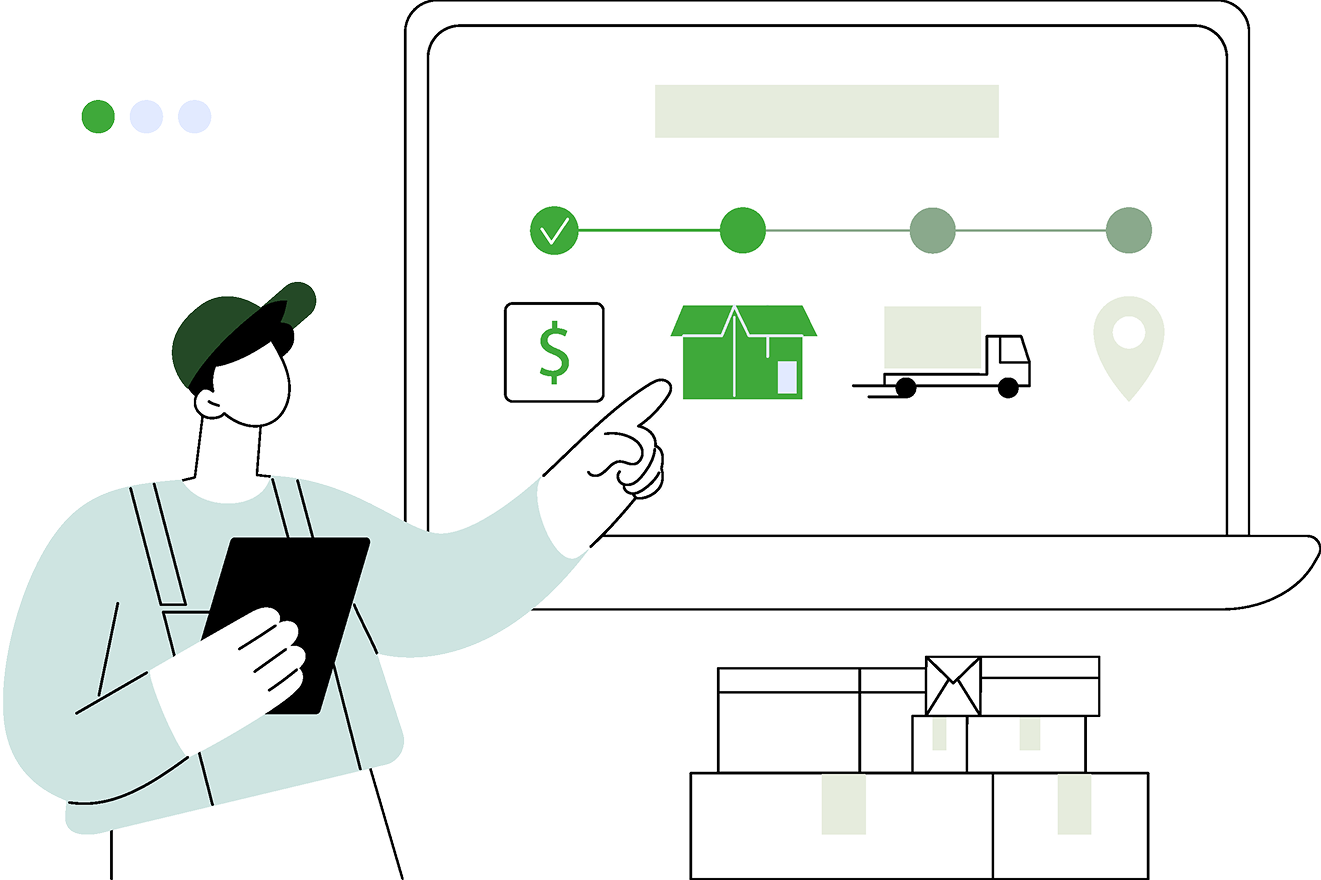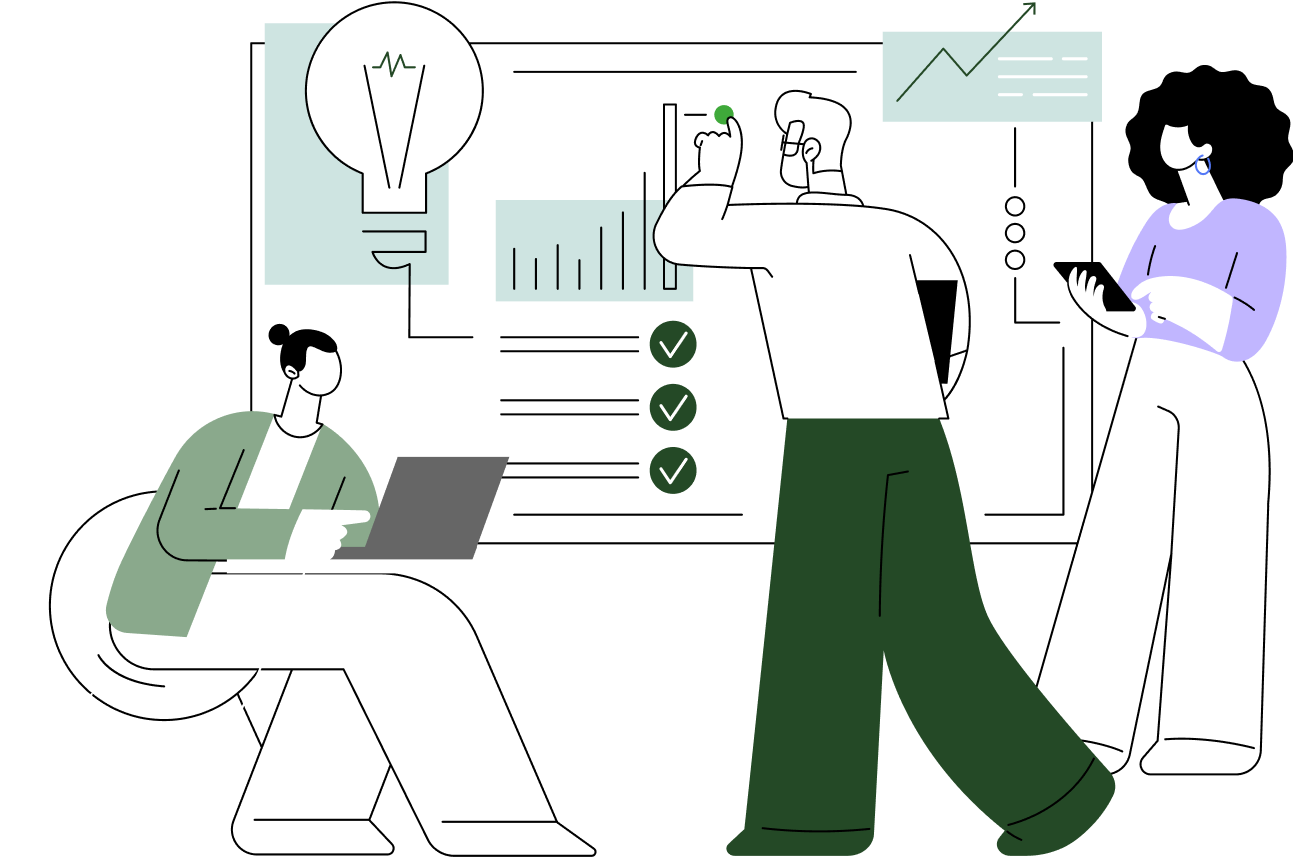Nestlé generates over $200 million in business value from its data analytics initiatives alone.
The global food giant isn't just feeding the world. It's reshaping how multinational companies use data analytics for market expansion, consumer insights, and supply chain optimization to identify opportunities, enter new markets, and scale operations across 187 countries.
This isn't about collecting more data. It's about building data-driven market expansion systems that turn consumer insights into market advantage, supply chain efficiency into competitive edge, and AI-powered decision-making into sustainable growth.
Key takeaways
- Nestlé's centralized Azure Data Lake eliminated 17 legacy systems and improved data processing speed by 50%
- AI-powered Sales Recommendation Engine delivered 3% additional sales growth among major US customers
- The company's "Seed" M&A framework enables 80% component reusability for faster market entry acquisitions
- Machine learning reduces demand forecasting errors by 30%, optimizing inventory and reducing costs
- Digital adoption platforms returned 1.5 million productivity hours, equivalent to $30 million in financial gains
Building the Foundation for Data-Driven Expansion
Modern market expansion requires more than intuition and market research. It demands real-time insights, predictive analytics, and the ability to adapt quickly to local conditions.
Nestlé recognized this shift early. The company committed to becoming an "intelligent, AI-powered company, seamlessly connected from farm to fork."
Centralized Data Architecture as the Growth Engine
Before 2018, Nestlé operated with fragmented data systems. Different regions, brands, and business units maintained separate databases, creating conflicting versions of truth and limiting analytical capabilities.
The solution came through a strategic partnership with Deloitte to build a Microsoft Azure Data Lake. This centralized platform now serves as the foundation for over 400 operational reports used by more than 800 sales users.
The transformation eliminated data silos that previously hampered collaboration between business functions. Teams can now access unified datasets while maintaining appropriate data confidentiality controls.
Technology Stack Supporting Global Scale
Nestlé's data infrastructure combines best-of-breed solutions with proprietary AI platforms.
Microsoft Ecosystem Integration
- Azure Data Lake for centralized storage and processing
- Dynamics 365 for agile M&A integration and customer experience
- Power BI for analytics and visualization across all business units
Proprietary AI Platforms
- NesGPT for enterprise collaboration and process automation
- Cortex provides AI system providing creative guidelines to 15,000 marketers globally
Cloud and IoT Capabilities
- AWS infrastructure supporting Nespresso and Purina IoT platforms
- Real-time data collection from connected devices and retail environments
Strategic Applications Driving Market Success
Data analytics touches every aspect of Nestlé's expansion strategy, from identifying opportunities to executing market entry plans.
Data Analytics ROI and Market Expansion Success Metrics
Nestlé's data analytics investments demonstrate quantifiable returns across multiple business dimensions. The company's transformation from fragmented data systems to a unified, AI-powered platform has generated over $200 million in measurable business value over four years.
Direct Revenue Impact
- Sales Recommendation Engine delivers 3% sales increase among major customers
- Targeted retail promotions show 11% sales uplift through data-driven campaigns
- Market-specific growth with Mexico operations achieving 13.9% sales increase in 2023
Operational Efficiency Gains
- Supply chain optimization reduces 30% reduction in demand forecasting errors
- Retail execution cuts 20% cost reduction in store audits through AI-powered systems
- Workforce productivity gains $30 million annual financial gains from digital adoption
Innovation Acceleration
- Product development reduces ideation cycles from 6 months to 6 weeks
- Market testing enables rapid validation of 100+ product concepts through AI-moderated research
- Time-to-market accelerates launch cycles for targeted demographic products
Consumer Intelligence and Trend Prediction
Understanding consumer behavior at scale requires sophisticated analytical capabilities. Nestlé processes insights from over 340 million first-party data records to fuel targeted marketing campaigns across digital channels.
The company operates 45 content studios that leverage AI and machine learning to generate personalized digital content for diverse media platforms and consumer segments. This approach enables "mass personalization" at global scale, which is critical for resonating with specific sub-segments in new markets.
"AI tools assess global food trends, evolving customer preferences, and nutritional science to inform the creation of new products and renovation of existing ones."
Key Data Analytics Applications for Consumer Insights
- Social media sentiment analysis across 187 countries
- Purchase pattern recognition and predictive modeling
- Real-time trend identification and market opportunity mapping
- Personalized nutrition recommendations based on health data
- Cross-platform content optimization for maximum engagement
AI-Powered Sales Optimization
The Sales Recommendation Engine represents one of Nestlé's most successful data applications. Used by over 1,500 sales representatives, this AI system provides data-driven recommendations for prioritizing store visits and optimizing product assortment.
The system analyzes complex variables including pricing changes and competitor strategies, sales volume patterns and seasonality, promotional effectiveness across different channels, and store-specific performance metrics.
This intelligent routing and recommendation system has delivered measurable results with a 3% increase in additional sales among major customers in the US market.
Supply Chain Intelligence and Forecasting
Accurate demand forecasting becomes exponentially more complex when operating across global markets with diverse consumer preferences and economic conditions.
Nestlé's AI-powered demand forecasting processes historical sales data, market trends, weather patterns, and other variables to predict demand with greater accuracy. The results speak for themselves with a 30% reduction in forecasting errors.
In Brazil, the company's DataLab achieves 94% accuracy in predicting product sell-out over 12-week periods. This precision enables swift interventions in supply or production when potential gaps are identified.
Market Expansion Case Studies
Real-world applications demonstrate how Nestlé translates data capabilities into market success across different scenarios.
United States Modernization and Optimization
Challenge Optimize performance in a mature, highly competitive market while building scalable data infrastructure.
Strategy Comprehensive data modernization program creating a unified platform integrating information from more than 10 distinct data sources.
Results
- $200+ million in cumulative business value over four years
- 50% faster data ingestion capability
- Decommissioned 17 legacy siloed systems
- 3% additional sales through AI-powered recommendations
The US transformation serves as a blueprint for data modernization in other major markets.
Mexico Strategic Hub Development
Challenge Establish Mexico as a key export hub serving approximately 70 countries while managing complex production and distribution logistics.
Strategy $1 billion investment in production capacity with strategic allocation. 50% focused on coffee production expansion, 25% dedicated to pet food manufacturing, and 25% for dairy, culinary products, and distribution infrastructure.
Implied Data Applications
- Advanced demand forecasting for diverse international markets
- Supply chain optimization across global export network
- Production planning based on multi-country consumption patterns
Africa Localized Innovation and Market Entry
Challenge Provide affordable nutrition in regions with significant food insecurity and limited digital market research infrastructure.
Strategy Consumer-centric "Test & Learn" approach using hybrid shop testing in local markets like Abidjan, engaging directly with buyers and shopkeepers.
Results
- Validated market potential for fortified porridge products
- Identified importance of brand ambassadors in target demographics
- Discovered opportunities for whole-grain product variants
- Facilitated affordable nutrition access for over 20 million people in Côte d'Ivoire
This case demonstrates how data collection strategies adapt to local infrastructure while maintaining strategic insights.
Premium Segment Expansion Nespresso Operations
Challenge Regain direct control of premium coffee distribution in key markets while enhancing customer experience.
Strategy Strategic buybacks in Saudi Arabia and South Africa using the standardized "Seed" M&A framework.
Implementation
- Rapid migration to Dynamics 365 within four months
- Integration of 21 retail outlets, B2B operations, and e-commerce platforms
- Implementation of advanced analytics through Power BI and Azure Data Lake
Outcomes
- Improved accounting and supply chain reporting
- Enhanced product tracking between retail locations
- Faster point-of-sale transactions enabling better customer service
- Increased sales through improved employee training and product knowledge
The 80% component reusability of the "Seed" framework demonstrates how standardized data platforms accelerate market entry.
Quantifiable Business Impact
Nestlé's data investments generate measurable returns across multiple dimensions of business performance.
Revenue Growth and Market Performance
Beyond the $200 million in direct business value from data lake projects, specific initiatives demonstrate clear sales impact.
Sales Recommendation Engine delivers 3% additional sales among major US customers while Targeted Promotions achieve 11% sales uplift through data-driven confectionery promotion with Tesco and Market-Specific Growth shows Mexico achieved 13.9% sales rise in Swiss Francs during 2023.
Supply Chain Optimization
- 30% reduction in demand forecasting errors
- Improved inventory management and procurement planning
- Reduced stockouts and overproduction waste
Retail Execution
- 20% reduction in store audit costs through AI-powered image recognition
- Real-time monitoring of shelf availability and pricing compliance
- Automated tracking of competitor promotions and market dynamics
Workforce Productivity
- 1.5 million productivity hours returned through digital adoption platforms
- $30 million in inferred financial productivity gains annually
- 50% reduction in training needs for key applications
- 93% decrease in related support calls
Innovation Acceleration
AI tools significantly compress innovation timelines.
NesGPT Impact reduces product ideation from six months to six weeks while Concept Testing enables rapid validation of 100+ product concepts through AI-moderated research and Time-to-Market accelerates launch cycles for products like Nescafé Espresso Concentrate targeting Gen-Z consumers.
Overcoming Implementation Challenges
Large-scale data transformation faces predictable obstacles. Nestlé's experience provides insights into effective solutions.
Data Quality and Integration
Challenge Inconsistent data quality across global operations and legacy system complexity.
Solution Implementation of FAIR data principles (Findable, Accessible, Interoperable, Reusable) with robust governance frameworks. Continuous data quality monitoring through 24/7 support services and comprehensive CI/CD processes.
Cultural Transformation
Challenge Shifting from judgment-based decisions to AI-driven insights across 270,000+ global employees.
Solution Establishment of Digital Adoption Centers and comprehensive upskilling programs. Deployment of platforms like WalkMe to provide contextual guidance and support during system adoption.
Technology Integration
Challenge Connecting modern AI tools with legacy systems across diverse global operations.
Solution Strategic partnership ecosystem combining major technology providers (Microsoft, AWS, IBM) with specialized consultants (Deloitte, KPMG) and niche analytics firms.
Strategic Partnership Ecosystem
Nestlé's expansion capabilities rely on a carefully orchestrated network of technology and consulting partnerships.
Technology Foundation Partners
Microsoft provides core infrastructure through Azure, Dynamics 365, and Power BI, enabling unified global operations and rapid M&A integration.
AWS supports specialized IoT platforms for brands like Nespresso and Purina, leveraging scalable serverless architecture.
IBM collaborates on centralized business intelligence systems and data governance frameworks.
Strategic Implementation Partners
Deloitte serves as key collaborator in data lake development and Sales Recommendation Engine creation, bringing expertise in large-scale transformation.
KPMG functions as technology partner for M&A framework development and Dynamics 365 implementation across major transactions.
Specialized Analytics Partners
Outset AI provides AI-moderated research platform for rapid product concept testing across multiple countries.
dunnhumby delivers insight-led media planning and activation, demonstrated through successful retail promotions.
This multi-layered partnership strategy combines foundational tech providers, broad strategic consultants, and specialized solution experts to allow Nestlé access to best-of-breed capabilities across the entire data analytics spectrum.
Many of these partnerships are not merely about outsourcing tasks but involve co-creating solutions and accelerating the adoption of new methodologies. This suggests that partnerships are a key mechanism for Nestlé to quickly acquire and integrate cutting-edge data analytics capabilities, rather than attempting to build every solution in-house, which is crucial for maintaining speed and agility in a competitive global market.
Furthermore, by working with a diverse range of partners, Nestlé inherently diversifies the risks associated with over-reliance on a single vendor's technology or a single consultancy's approach, providing a broader base of knowledge and solutions to draw upon during complex expansion initiatives.
Future Trajectory and Emerging Capabilities
Nestlé continues evolving its data capabilities to address future market challenges and opportunities.
Generative AI Integration
The development of NesGPT demonstrates commitment to cutting-edge AI technologies. Plans include integration of Microsoft Dynamics 365 Copilot for enhanced productivity and deeper business insights.
Generative AI applications span accelerated product innovation and concept development, supply chain process optimization, enhanced consumer relationship management, and streamlined internal collaboration and knowledge management.
Hyper-Localization and Personalization
Advanced analytics enable movement beyond regional segmentation toward community-specific customization. This granular approach becomes critical in fragmented consumer landscapes where local preferences significantly impact product success.
Sustainability and Transparency
Data analytics supports ambitious sustainability goals including deforestation-free supply chains by 2025 and significant virgin plastic reduction. Data-driven sustainability initiatives can reduce costs while improving brand positioning.
Blockchain technology exploration enhances supply chain transparency and traceability, supporting verified ethical sourcing practices.
What happens when you get this right
Organizations that successfully implement data-driven expansion strategies achieve compound benefits that extend far beyond initial investments.
Accelerated Market Entry
- Faster identification of viable market opportunities through predictive analytics
- Reduced risk in new market investments through data-validated strategies
- Shortened time-to-market for localized product offerings
Operational Excellence
- Supply chain resilience through improved forecasting and risk management
- Enhanced customer experiences through personalized engagement
- Continuous optimization based on real-time performance feedback
Competitive Differentiation
- Market insights that competitors may miss through traditional research methods
- Ability to adapt quickly to changing consumer preferences
- Sustainable competitive advantages through proprietary AI capabilities
Strategic Implementation Roadmap
Building data-driven expansion capabilities requires systematic development across multiple dimensions.
Foundation Building
Data InfrastructureStart with centralized data architecture that can scale globally while maintaining local flexibility. Nestlé's Azure Data Lake approach provides a proven model for eliminating silos while preserving necessary data governance.
Technology IntegrationEstablish core platforms that support both current operations and future growth. The Microsoft ecosystem integration demonstrates how cohesive technology choices simplify scaling and reduce complexity.
Capability Development
AI and AnalyticsDevelop both purchased solutions and proprietary capabilities. Nestlé's combination of partner solutions (Deloitte's Sales Recommendation Engine) with internal development (NesGPT) provides balanced capability building.
Workforce EnablementInvest heavily in data literacy and digital adoption. The 1.5 million productivity hours gained through digital adoption platforms demonstrate the importance of human capability alongside technological advancement.
Execution Excellence
Partnership StrategyBuild ecosystem relationships that provide access to specialized expertise without requiring internal development of every capability.
Continuous ImprovementEstablish feedback loops that enable rapid learning and adaptation based on market performance and changing conditions.
Building Your Data-Driven Expansion Strategy
Nestlé's experience provides actionable insights for organizations seeking to leverage data for market expansion.
Start with Clear Business Objectives
Define specific expansion goals before investing in technology. Whether entering new geographic markets, targeting demographic segments, or launching product categories, clear objectives guide technology choices and success metrics.
Invest in Data Quality and Governance
No amount of sophisticated AI can compensate for poor data quality. Establish robust governance frameworks and continuous quality monitoring before implementing advanced analytics.
Balance Build vs. Buy Decisions
Strategic combination of partner solutions and proprietary development accelerates capability building while creating unique competitive advantages. Focus internal development on core differentiators while leveraging proven solutions for standard functions.
Prioritize Change Management
Technology transformation requires cultural change. Invest significantly in training, support systems, and change management to ensure adoption and effectiveness.
Companies that successfully scale data initiatives combine technological capability with organizational change management.
FAQ
How much did Nestlé invest in data analytics for market expansion?
Nestlé's data analytics investments have generated over $200 million in measurable business value over four years, with significant allocations including a $1 billion investment in Mexico operations and substantial ICT budget increases globally.
What specific AI technologies does Nestlé use for market expansion?
Nestlé employs Microsoft Azure Data Lake for centralized storage, proprietary AI platforms like NesGPT for enterprise collaboration, Cortex for marketing guidelines, Sales Recommendation Engines for retail optimization, and machine learning models for demand forecasting with 94% accuracy.
How does Nestlé measure ROI from data analytics investments?
ROI is measured through direct revenue impact (3% sales increase from AI recommendations), operational savings (30% reduction in forecasting errors), productivity gains (1.5 million hours returned), and cost reductions (20% decrease in audit costs).
What challenges did Nestlé face implementing data analytics globally?
Primary challenges included eliminating data silos across 17 legacy systems, ensuring data quality across 187 countries, shifting 270,000+ employees to AI-driven insights, and integrating modern tools with existing infrastructure.
How does Nestlé use data analytics for entering new markets?
Nestlé uses predictive analytics for market opportunity identification, AI-powered consumer research for local preferences, supply chain optimization for new geographic regions, and the standardized "Seed" M&A framework for rapid market entry through acquisitions.
What partnerships support Nestlé's data analytics strategy?
A Key partnerships include Microsoft (Azure, Dynamics 365), AWS (IoT platforms), Deloitte (implementation consulting), KPMG (M&A frameworks), IBM (business intelligence), and specialized firms like Outset AI for concept testing.
Summary
Nestlé's transformation into a data-driven organization demonstrates how traditional companies can leverage analytics and AI for systematic market expansion. The journey from fragmented data silos to a centralized, AI-powered platform generated measurable business impact while building capabilities for future growth.
Key success factors include strategic technology choices that balance standardization with flexibility, significant investment in workforce development and change management, and a partnership ecosystem that provides access to specialized expertise.
The results speak clearly with $200+ million in business value, 3% sales growth from AI recommendations, 30% improvement in forecasting accuracy, and 1.5 million productivity hours returned to the business.
For organizations seeking to scale globally, Nestlé's approach provides a proven framework. Success requires combining technological capability with organizational transformation, clear business objectives with flexible execution, and internal development with strategic partnerships.
The future belongs to companies that can transform data into market advantage. Nestlé's blueprint shows the way forward.
See how 30+ companies turned data challenges into competitive advantages



.png)
.png)
.png)









